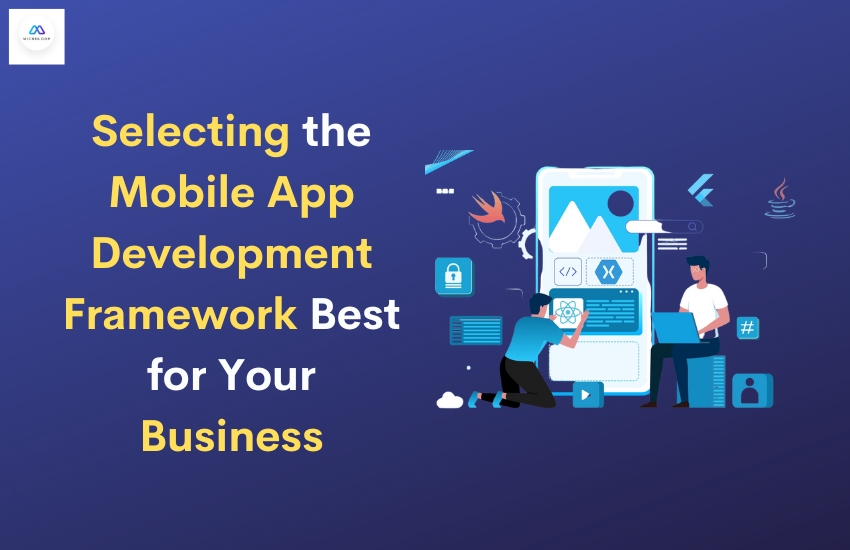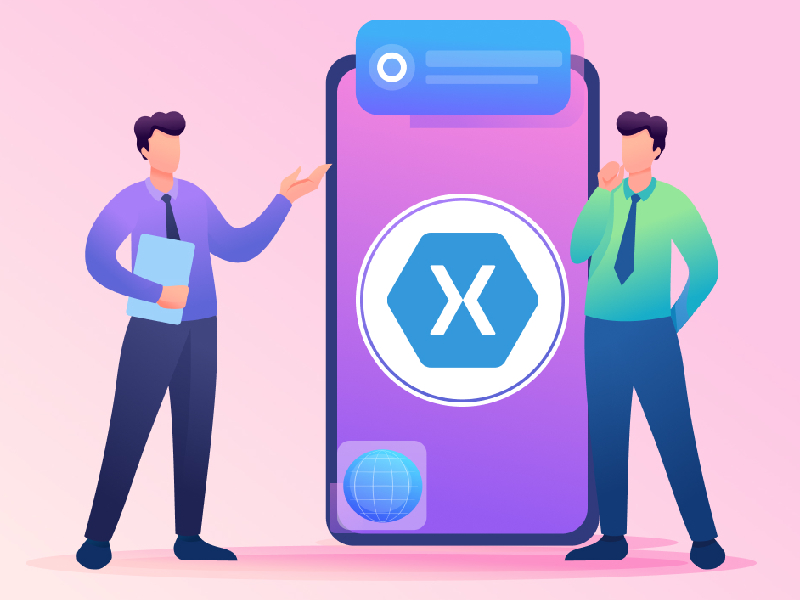
Close


Are you looking to build a mobile app for your business? If so, you have come to the right place! In this comprehensive guide, we will provide you with the framework that will guide you with valuable insights on factors to be considered while choosing a framework and help you explore and choose the feasible mobile app development framework that can benefit your business in the long term.
Whether you’re new to the industry or already an existing player, you can choose your app idea and get the best mobile framework for cross-platform with the help of Microloop IT Solutions in Australia.
For laymen, a mobile app development framework is a toolkit that functions as a foundation for your mobile application, offering a set of code libraries, software development kit tools, and API tools to help developers build an efficient and robust mobile application.
There are two Types of Mobile App Development Frameworks:
Native mobile development framework that develops an app on either iOS or Android, whereas cross-platform development framework helps you build apps that work on multiple platforms and operating systems.
Also Read: Understanding Basics of Mobile App Development
To build a mobile app development, you need help with two languages. For Android apps, Swift language and iOS Java language is the preferred framework.
Some mobile app development frameworks help developers to build fast and efficient apps with extraordinary performance. E.g., Instead of only working on mobile app development, you can also work on building UI designs that make the user experience more engaging and grab users' attention.
Numerous factors affect a company's decision when choosing a mobile app development framework for its business. While successfully launching an app for your business, you need to look at the customer base that needs to be targeted.
Let's explore a few factors that need to be considered before going or a mobile app development framework:
For both cross-platform and native apps, the most crucial step is to consider the app's speed. This feature is essential for every app but crucial for gaming apps because it observes unbeatable speed and performance. These mobile app development frameworks help developers use code for optimum speed, which is important for many apps.
In today's fast-changing world, networks of mobile apps are usually supported by the cross-platform, which means working on both platforms simultaneously without needing to develop separate code for individual platforms.
The approach of platform support is useful because it serves the advantage of helping users to obtain mobile applications on every platform without spending time coding for every platform, facilitating smooth data integration between systems.
When considering the development cost for your business, you need to consider ROI and the overall development cost. The cost implication associated with different frameworks will help you make an informed decision and avoid unexpected financial constraints during development.
Along with cost, make sure that the development aligns with your requirements, provides good developer productivity, and allows for scalability and long-term growth for your company.
As cyber threats continue to rise among mobile app developers, the need to safeguard users' data and maintain the app's integrity has become the most crucial aspect of the app development process. Ensure you thoroughly assess each framework's security features and potential risks. The security risk will manage framework vulnerabilities and authorization, ensuring proper build-in support for security or third-party authentication services.
In the rapidly changing world of mobile app development, efficiency plays a crucial role in delivering high-quality apps within budget and time constraints. An efficient framework streamlines development tasks, optimizes resource utilization, and promotes collaboration among team members.
What does an efficient framework mean? It provides developer-friendly tools, clear documentation, and intuitive APIs. This empowers developers to work efficiently and leads to a faster development cycle.

It is a cross-platform app development JavaScript framework for mobile apps built and supported by Facebook. The main role of React Native is the easy use of a single codebase across all platforms.
While working on React Native, creators precisely write native code because they have to leverage the language of the focused platforms.
Let's explore a few features of React Native in detail:
React Native offers exceptional performance for mobile apps. It achieves this by acting as a bridge to communicate between Native components and JavaScript. This helps them in leveraging native platform APIs directly, which results in faster load time, smoother animations, and a more responsive user experience as compared to other mobile app development frameworks.
React Native comes with the ability to reuse components across different platforms.
Let’s explore what a component is. Components are the building blocks of the user interface that can be shared between iOS and Android apps. This means the component can be written and used for both platforms saving time and development costs.
React Native has a rich library of numerous third-party extensions, libraries, and extensions.
The advantage of this third-party extension is that it allows developers to add a wide range of functionalities to their apps without starting from scratch.

A portable UI kit for building native apps across mobile, web, and desktop platforms from a single codebase. Flutter uses a programming language and provides a responsive mobile design without needing a JavaScript bridge. The framework can integrate with different platforms such as Android, iOS, MAC, and Windows.
An open-source software development that enables easy and smooth cross-mobile platform development.
Let's explore its features:
The hot reload feature of Flutter allows developers to instantly see changes in the app without a complete rebuild, reducing the effort and time required for testing and debugging code. Also, fundamental time preview changes enable developers to identify and fix issues more efficiently, leading to a streamlined testing process.
The feature in Flutter allows developers to use a single codebase for Android and iOS apps. This helps the company reduce development time, resource allocation, and overall project costs.

Ionic is a complete open-source hybrid application development framework using web technologies to develop performing and customized apps. A single codebase can build apps for multiple platforms, reducing development time and effort.
The rich library of built-in UI components and themes helps developers build consistency across all platforms and facilitates faster prototyping and development.
Moreover, it helps developers to use functionalities like cameras, push notifications, and GPS seamlessly within their apps.
Let's explore its features:
It is closely associated with Angular, a JavaScript framework for building web applications. It can handle app routing, data binding, and other features that enhance the overall development experience.
The framework can extend its capabilities by integrating third-party plugins for various functionalities. The Ionic has an active and growing community that develops an extensive plugin ecosystem.

For the layman, Xamarin is an open-source, cross-platform framework with the following goals:
Sharing code, test, and business logic across all platforms.
With the help of Visual Studio, write cross-platform applications in C#.
It is built on top of .NET, which automatically handles tasks such as memory allocation, garbage collection, and interoperability with underlying platforms.
Let's explore its features:
Xamarin contains binding for Software development kits (SDKs) in iOS and Android. These built-in bindings are easy to navigate and use, providing robust compile time type checking during development. The strongly typed binding reduces runtime errors and results in higher-quality applications.
The framework offers sophisticated cross-platform support across Android, iOS, and Windows platforms. It offers a unified API that can be accessed across all platforms, reducing development costs and time to market for mobile developers.
Mobile app development framework offers a powerful advantage for marketers to promote their brand through push notifications, provide customers with a personalized experience, and advanced optimization possibilities such as improving their ranking through SEO-optimized content.
It has become a popular choice for marketers aiming to gain brand recognition through online modes of communication. However, certain factors can affect updating mobile app development for your brand. Hiring a team of trusted experts for your app development will be the perfect solution.
Microloop IT Solution, Australia has the best team of mobile app development experts from whom you can avail services and aim for the best results.